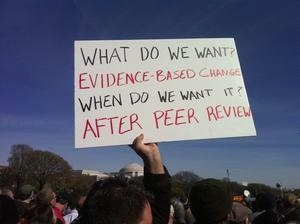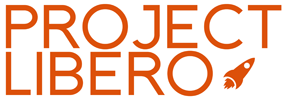They looked at me, then again at the flip chart and then back to me. They were confused. I understood their dilemma, here they were on a leadership and management course and I was asking what their supernatural aid might be, who they could enlist as mentors and helpers in their journey in to the “abyss”. All this from someone they had met a few scant minutes before.
We went outside to run the exercise. The gardens green and lush, the sun beating down on as we worked. I asked them to walk across the lawns as if toward the end of their project and as they walked would come a time when they would feel an obstacle. When they got there, they should stop. Again, the confused face but they had come this far and because they trusted Margaret, and she in turn trusted me they went for it.
Both of them felt the obstacle, both of them made some sense of what was holding them back – in essence rather than trusting us to have answers / models, they trusted themselves and their intuition.
The next day brought a different group, different situation. Gathered together to discuss mentally healthy workplaces they were keen and motivated but fearful of saying the wrong thing. Over the day, the push and pull of good dialogue worked its magic. By the time Julie and I set them loose on the action research task they had let go of the idea of finding the “correct” or “right” answer.
The work they came back with blew us away. Rather than answers regurgitated from the leading websites what we got was actually intuitive, insightful research. Working in teams they had trusted their instincts on what they should present. Automatically they had sifted and discarded solutions which were unworkable at their organisation. If anything they had added more nuance to the recommendations.
What was interesting to me was that both pieces of training involved organisations where data and metrics are very much at the heart of their success. Yet what had unlocked a route forward was understanding themselves, their colleagues and what they needed to say and do to succeed. It also intrigued me that in both cases this instinctive approach had yielded much more commitment to action. The deliverables that both groups talked about were real and immediate, not something way out in the future plotted on a Gantt chart.
 Now, before anyone leaps in and thinks I’m suggesting we don’t need project management, detailed research or indeed business analysis I just want to clarify that all those things are important. What I am saying is that sometimes those things are in the way. More than that, sometimes we are in our own way. We rationalise, complicate and overthink decisions. We dissemble and prevaricate when instead we should trust our instinct.
Now, before anyone leaps in and thinks I’m suggesting we don’t need project management, detailed research or indeed business analysis I just want to clarify that all those things are important. What I am saying is that sometimes those things are in the way. More than that, sometimes we are in our own way. We rationalise, complicate and overthink decisions. We dissemble and prevaricate when instead we should trust our instinct.
